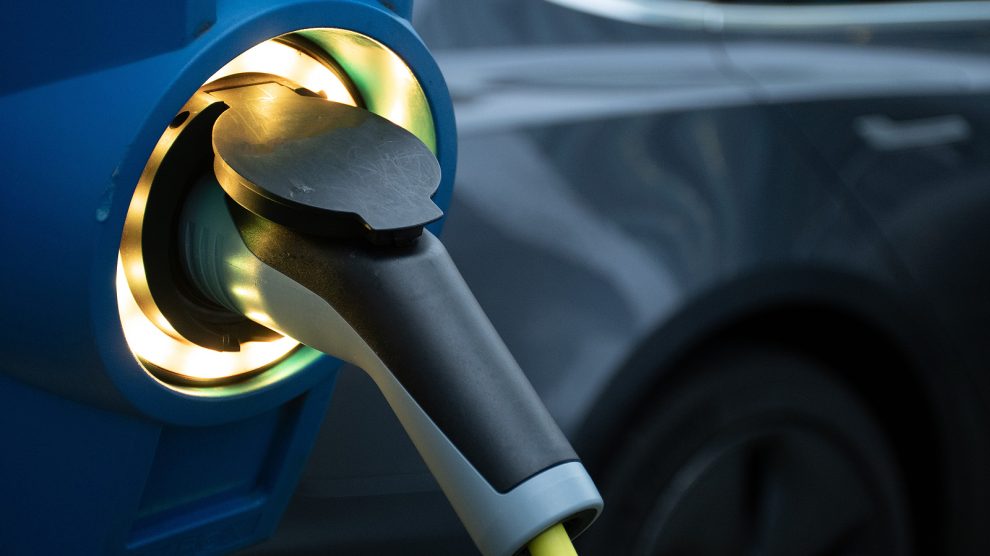Russian giant Nornickel has agreed a deal to supply Johnson Matthey with raw materials for its new Finnish plant. The news comes just a week after Nornickel announced plans to ramp up production at its Finnish refinery.
Nornickel is set to supply nickel and cobalt from its Harjavalta refinery in Finland to a new Johnson Matthey plant that will produce cathode materials used in electric vehicle (EV) batteries.
Johnson Matthey is expected to begin construction of the plant, in the western city of Vaasa, in partnership with state investor Finnish Minerals Group (FMG) later this year.
The plant will be powered solely by renewable energy and incorporate an innovative effluent treatment solution.
- Mining companies need to adopt ESG principles
- Melting permafrost is a threat not just to the Arctic, but to the entire planet
- Mining or indigenous rights: Does it have to be one or the other?
“We are delighted for this opportunity to develop our business together with Johnson Matthey — a new important player in the Finnish battery materials ecosystem — and help the company expand on the European EV market,” said Vladimir Potanin, president of Nornickel. “This deal should enable us to identify mutually beneficial sustainability initiatives that support the ambition of achieving the most sustainable battery materials value chain in Europe.”
Just last week Nornickel, the world’s largest producer of palladium and high-grade nickel and a major producer of platinum, cobalt and copper, announced plans to boost capacity at Harjavalta. Output of nickel at Harjavalta will increase from the current 65,000 tons per year to 75,000 tons per year by 2023.
A second stage will see output increase to over 100,000 tons per year by the beginning of 2026.
Great news for Finland
“Securing the long term supply of nickel and cobalt with Nornickel is an important milestone on our journey towards developing a sustainable battery materials ecosystem and further demonstrates the progress we are making on the commercialisation of our business,” added Robert MacLeod, CEO Johnson Matthey.
“With sustainability at the heart our strategy and an increasingly important requirement for our customers and consumers, we are delighted to be working with Nornickel to deliver sustainable cathode materials to the market.”
Finnish PM Sanna Marin called the news “great for Finland and for Vaasa”.
Nornickel and Johnson Matthey have also signed a memorandum of understanding to explore options to further extend metal supply in the future.
The two firms also intend to collaborate in other parts of the battery materials value chain, including new metal dissolution technology, circular economy opportunities, and tokenisation of the supply chain using blockchain technology.
Implementation of token-based smart contracts allows for full transparency of metal deliveries as well as environmental, social, governance (ESG) credentials.
Last year, a fund created by Nornickel issued its first metal contract tokens to two major industrial partners – Traxys and Umicore – setting the stage for a new era of digital transactions, which will optimise supply chain efficiency and transparency.
Nornickel’s Global Palladium Fund (GPF) issued the digital instruments via the global tokenisation platform Atomyze, backed by a pool of international investors.
“Confirmation of responsible sourcing – provenance – ESG characteristics, carbon footprint – are becoming important,” says Anton Berlin, vice president, sales and distribution at Norilsk Nickel.
“In our view, the digital technology of tokens allows us to combine all this together. Tokens are a digital representation for metals to which you can attach additional information. The benefit is that regardless of the complexity of the value chain, reselling, this sort of information is immutable, it can’t be distorted, that’s the power of blockchain technology – it prevents any changes or falsification of data.
“As the industry evolves, it becomes more and more important how you validate this information. Tokens allow you to do this quite easily, without involving third parties, without having to do large-scale audits, because often the value chains are complex, intersecting. If we look at them, there are usually a lot of overlapping lines. There are suppliers of raw materials, there are companies that process recycled materials, and then all this will be combined at precursor production. Electrolyte production, membrane production, will all merge at battery cell production, which will turn into batteries, along with electronics. It’s a huge layer of companies, a huge industry, a huge number of manufacturing connections. Then trying to show what my carbon footprint was at input, how much I added, how much is in my output product.
“In our opinion, the tokenisation of the value chain is in demand in today’s economy, today’s industry.”
This content has been produced in collaboration with an Emerging Europe partner organisation.






[…] Read more at emerging-europe.com […]
[…] Nornickel to supply new Johnson Matthey cathode plant in Finland […]